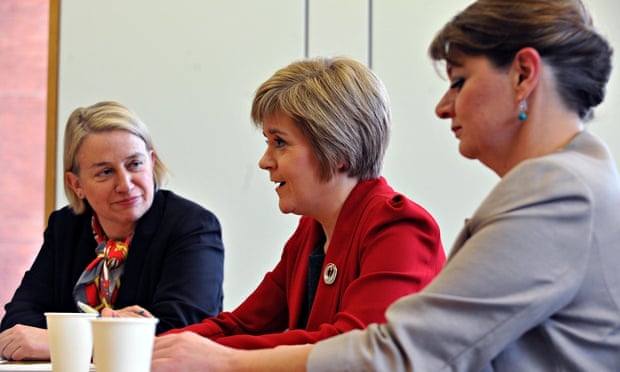| Jeremy Corbyn on day he won Labour Leader race, September 2015 (Image: BreakingNews.ie) |
This past week, I have found it interesting consuming what the so-called 'experts' predicted how 2016 will pan out. Some argue it's going to be a big year for Prime Minister David Cameron as either this, or next year, Britain votes to stay or leave the European Union. He has been negotiating UK's involvement in Brussels over the past couple of months, something which is set to continue for months to come.
As a side note for this post, Cameron's recent trips to various European countries like Bulgaria, Poland and Germany has been met with mixed reviews, from both Brits and Europeans alike. I've no doubt he'll spin the fact his current venture will be a resounding success, but with the press split over UK's EU membership, it's difficult to know whether the Prime Minister will have them on his side once more.
Despite Cameron's supposed 'big year', many 'experts' are in agreement that this is an even bigger year for the Labour Party. Since May 2015, when the Conservatives gained enough seats to form a majority government, the alleged downfall of the Labour Party was widely reported. This then carried on through that summer when their leadership election campaign caused a stir, leading to Jeremy Corbyn exceeding all initial expectations and won the race. Since then, it has all gone haywire for the Party with resignations, threats and divisions reported on a daily basis.
 |
| Green, SNP & Plaid Cymru gave Labour headache, 2015 (Image: Guardian) |
Labour's woeful 2015 could also have been avoided post-May. While Corbyn led the leadership polls for much of the summer prior to his September victory, all the 'Moderate' candidates, Liz Kendall, Yvette Cooper and Andy Burnham, went out of their way to distance their policies and ideals to the reportedly very left-wing Corbyn. Admittedly, I was a critic of Corbyn during this period too, but you can say that I've come to my senses in believing that he's gradually developing into a credible leader - I'll explain myself later.
The press then thrived on post-September when outspoken Labour MPs, some being high profile, turned their back on Corbyn by saying they will never work under his shadow cabinet and sulk at the back benches. It's their way of protesting the leader who, while the Party were in power under Tony Blair and Brown, voted against 450 government notions.
| Pat McFadden (Image: Daily Telegraph) |
It is somewhat understandable to hear comments from the so-called 'experts' that Corbyn is being hypocritical. I mean, how could someone vote constantly against his own party's policies for 13 years and then lead the same organisation and sack MPs from the front bench that disagree with his policies? Should it really be the case that only the back benchers can defy Corbyn's ideals?
Let's see it this way - imagine Jeremy Corbyn as the Managing Director of a firm that wants to move it to a different direction, something that he promised during his leadership campaign. Employees that aren't in agreement with his ideas have a clear choice - they can either actively search for another place of employment, or if they want to stay, at least adapt and do what you can to get along with the Director and perform well enough to benefit the company. The issue Labour have is that the defying MPs are doing neither of these and perhaps unintentionally, wrecking the reputation of the Party they work for.
| Michael Howard with young Cameron (Image: BBC) |
Labour can recover from the disastrous last twelve months, and it isn't too late for their recently savaged reputation to be salvaged. All there needs to be is profound unity between the 'left wing' and 'moderate' MPs. Rather admiringly, I can see Corbyn is making an effort in trying to do this. If he had it 100% his way, I'm sure he'd have gotten everyone in his party to collectively vote against the government's initially proposed (now abolished) tax credit cuts last autumn. But instead he listened to the 23 of his members who abstained from the vote and decided that the House of Lords backed a delay in cuts until a genuine debate had taken place. If he had it 100% his way, he'd have gotten every Labour MP to vote against airstrikes in Syria, but he listened to the MPs who wanted to back the government's notion. Unity has to be two-way.
Nowadays, it is very easy to oust a leader - take in football for example when Real Madrid recently got rid of Rafael Benitez as their manager, despite losing just three matches and scoring 69 goals in 25 matches this season. Some are suggesting that Jeremy Corbyn could be ousted at some point over the next twelve months. If that's the case, fine, but for unity to happen at any time, ideally, nobody would hold any grudges. Those from Labour who want the worst for their current leader, are only digging the party's grave even deeper.
The 'Moderates' in particular were never the protest and stroppy sort. If they genuinely want Labour to do well, they need to support the current shadow cabinet and not copy Corbyn's previous rebellious antics, and not to constantly remind him of that either.
Comments
Post a Comment